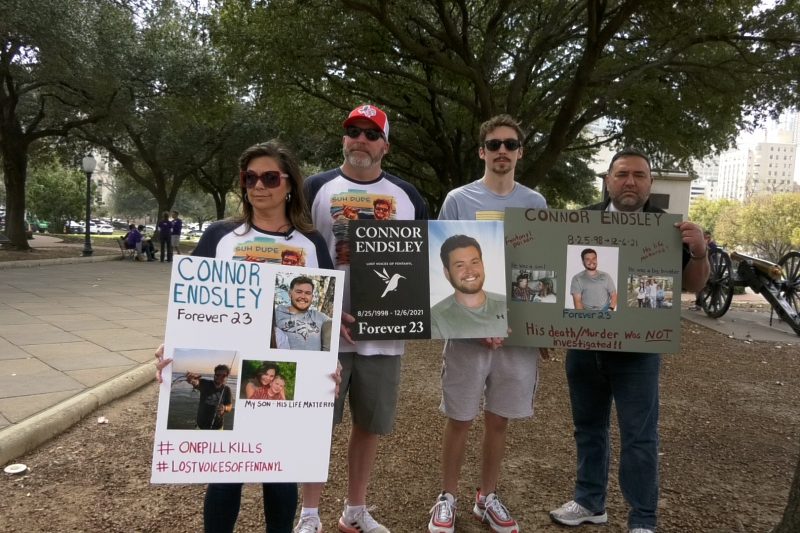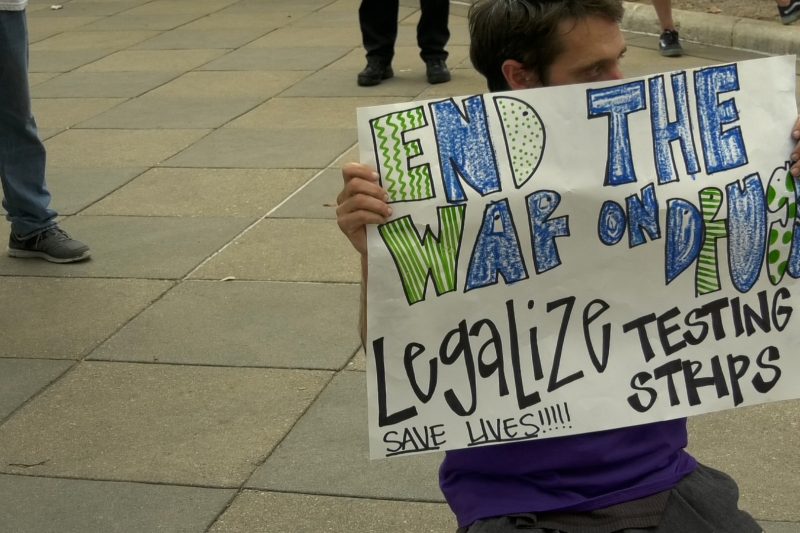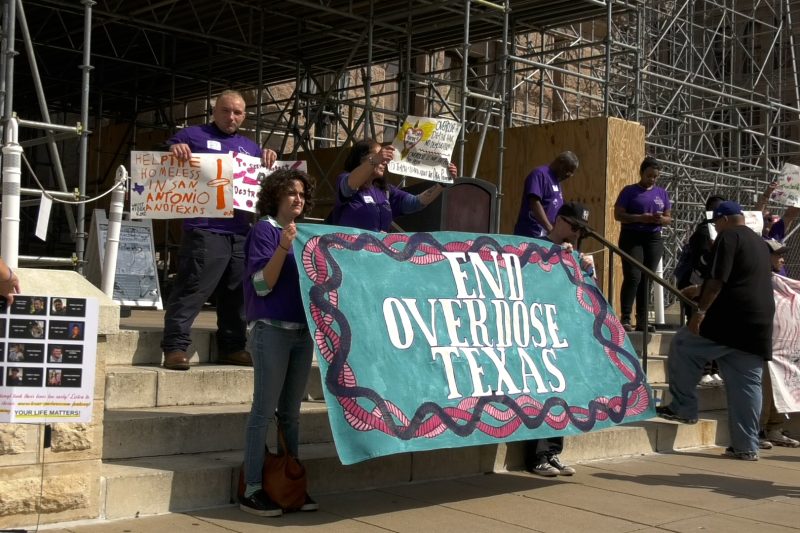Activists Demand More Resources to Combat Overdoses
By Avery Garrett
Reporting Texas TV
AUSTIN, Texas – 2022 was the deadliest year for people who died from preventable overdoses.
Travis County Judge Andy Brown announced in November that the county had 118 deaths from fentanyl in the first six months of 2022, the same number as the county’s total for 2021.
Citizens from across Texas gathered at the Capitol on Feb. 13 for the End Overdose Rally, to ask lawmakers for more resources for these overdoses. Many attendees are parents and siblings of overdose victims.

The family of Connor Endsley, who died from a fentanyl overdose in 2021, honored his memory at the rally. (Photo: Avery Garrett, Reporting Texas TV)
Tisha Endsley lost her 23-year-old son Connor to a fentanyl overdose in 2021 that contained four times the amount of fentanyl to kill one person.
“I feel like a lot more deaths can be prevented if they are able to test what they are actually getting because what they are getting, what they are asking for and what they are getting are two different things and it’s not fair,” Endsley said.
“He did not get a chance. He didn’t get a second chance and a lot of people are not getting second chances, and we are losing our kids.”
She said her son’s death was never investigated because Austin did not have enough funding at the time and did not have a narcotics division.
“We got his phone and we have his dealer’s name, his number and the car he drove. This was over a year ago,” Endsley said. “I don’t know if that dealer is still on the street.”
Hundreds gathered to demand the legalization of fentanyl testing strips that would allow people to test the drugs or medication they are taking and possibly prevent unintentional overdoses.

Some rally participants called for the legalization and distribution of fentanyl testing strips. (Photo: Avery Garrett, Reporting Texas TV)
Endsley believes these strips could have given her son and many others a second chance if implemented sooner.
Another request was more access to Narcan, which is a nasal spray that blocks the effects of opioids on the brain.
The University of Texas’ SHIFT Program is an initiative focused on shifting the conversation about substance use from misuse to wellbeing. SHIFT director Kate Lower said Narcan is a better safety measure against overdoses than fentanyl testing strips.
“What research tells us is that they aren’t always 100 percent effective,” Lower said.
“They can be a really good tool for someone. You should still be carrying Narcan because you still never know.”
Austin installed its first Narcan vending machine in August at Sunrise Community Church at 4430 Menchaca Rd, to help citizens get access to more medication.
The Narcan In Case of Emergency [ N.I.C.E.] Project, a group that focuses on community distribution of the spray, partnered with this church to bring more Narcan access to Austin. Lower said the medication remains in high demand and there is a low supply, so citizens are still struggling to acquire the life-saving nasal spray.
The data on overdose numbers can be up to six months old before it gets into the hands of decision makers. That’s why one advocate, Kasey Claborn, helped create the website TxCOPE to allow for instant, anonymous overdose reporting,
“The primary goal is to save lives. The way we save lives through the TxCOPE Platform is by improving our data sources as it relates to overdose data,” Claborn said.
She said there is still an increasing need for Narcan and fentanyl testing strips.
State Senator Royce West sponsored Senate Bill 868 in February to legalize the testing strips.
“My office works closely with the Harm Reduction Alliance to get this bill filed because the Alliance believes more lives could be saved with this language, and I was glad to help out,” West said.

Families who lost loved ones to overdoses participated in the End Overdose Rally at the State Capitol in Austin, Texas, on Wednesday, Feb. 13, 2023. (Photo: Avery Garrett, Reporting Texas TV)